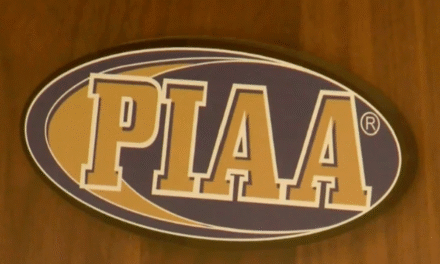Though a record total of over 164,000 students applied for school choice scholarships, caps on tax credits limited recipients to roughly 85,000.
A new report from the Commonwealth Foundation is shedding light on the growing demand for school choice scholarships in Pennsylvania.
According to the advocacy organization’s analysis, during the 2022-23 academic year, a record 85,570 K-12 students received the Educational Improvement Tax Credit (EITC) and Opportunity Scholarship Tax Credit (OSTC). However, approximately 80,000 additional applicants did not receive school choice funding that year.
“It is encouraging to see such a desire for educational choice options and witness Pennsylvania families using the available options in record numbers,” stated Rachel Langan, senior education policy analyst at the Commonwealth Foundation and author of the report. “However, the caps on EITC and especially OSTC scholarships severely limit the reach of these programs. Nearly one in two students who apply are turned away.”
The EITC and OSTC are tax credit programs that incentivize Pennsylvania businesses to donate to approved scholarship organizations. The scholarships permit students who live within a lower-achieving school district to attend a different public or private school. Though the existing educational tax credit programs achieve the goal for selected students, state education advocates say the need for expanded access to school choice necessitates additional avenues of funding.
“Applicant numbers alone illustrate how strongly families want educational options,” stated Andrew Lewis, Commonwealth Foundation president and CEO, regarding the report. “As more parents learn about scholarships and tax credits available to them, waiting lists will only grow.”
The growing education alternative vacuum has not escaped the notice even of Pennsylvania democrats, who tend to fall in line with party-line opposition to school choice programs.
Gov. Josh Shapiro (D) has, in the past, provoked the ire of his own party through his conceptual support for Lifeline Scholarships – a program that would expand school choice funding for students assigned to the lowest-performing 15 percent of Pennsylvania schools. Shapiro ultimately vetoed Lifeline Scholarship legislation in 2023 after it proved a sticking point amid budget negotiations.
“If enacted, this program would provide additional scholarships to tens of thousands of students stuck in these failing schools. For these denied families, Lifeline Scholarships would offer real hope to save their kids,” Langan argued. “When current programs cannot satisfy demand, thousands of ousted families have no other choices for their children; the only solution is to find more options.”
Lewis added the Commonwealth Foundation’s stance on the report’s findings, saying that, “To meet increasing demand, Pennsylvania must employ further educational options—starting first and foremost with Lifeline Scholarships.”
School choice remains at the forefront of public discourse on education, especially as the Trump administration has indicated its support for school choice as a remedy for failing public school systems.
“Every child deserves the best education available, regardless of their zip code. However, for generations, our government-assigned education system has failed millions of parents, students, and teachers,” reads a January executive order from the administration. The order goes on to direct various federal agencies to begin laying the groundwork for policies expanding access to school choice.






